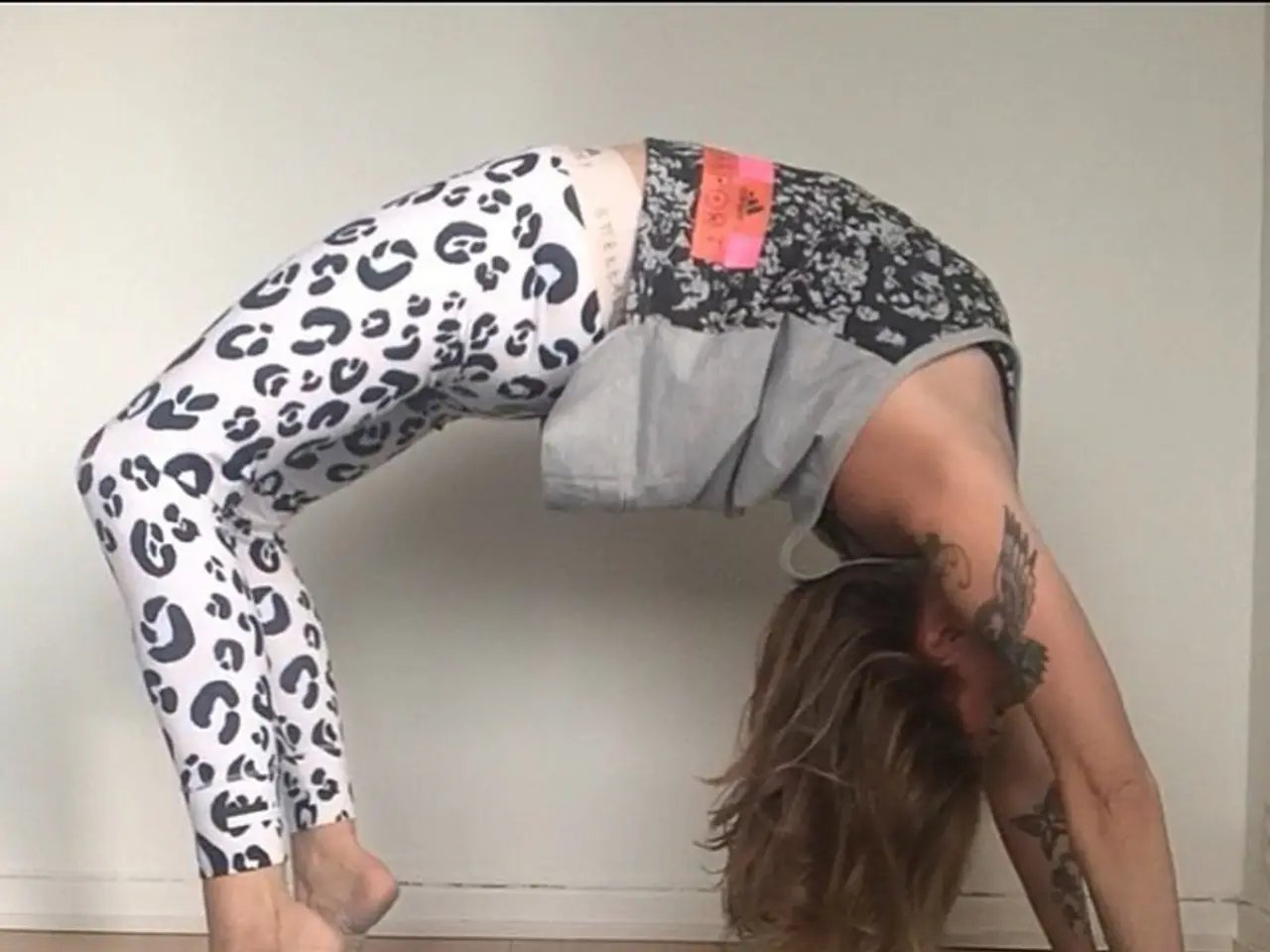Yoga Positions and Research for Managing Fibromyalgia: Insights and More
In recent years, a growing body of research has explored the potential benefits of yoga for individuals living with fibromyalgia, a condition characterized by significant musculoskeletal pain, changes in sleep patterns, and cognitive difficulties.
Yoga, a meditative movement form that combines coordinated movements, focus on breathing, relaxation, and meditation, or a combination of these activities, has been found to offer several proven benefits for fibromyalgia patients.
One of the most significant benefits is pain reduction. Studies have shown that yoga can help alleviate chronic pain and muscle soreness commonly experienced in fibromyalgia. Gentle stretching, mindful movements, and relaxation techniques can reduce pain perception by addressing muscle tension and improving joint mobility, contributing to overall pain relief.
Regular yoga practice can also improve fatigue, a common symptom of fibromyalgia. By enhancing physical function, flexibility, and circulation, yoga helps increase energy levels and combat the exhaustion that fibromyalgia patients frequently face.
Yoga is not just beneficial for the physical aspects of fibromyalgia; it also promotes mental well-being. The practice regulates the nervous system and reduces stress hormones through mindful breathing and relaxation, supporting mood improvement and alleviating symptoms of depression and anxiety often associated with fibromyalgia.
Additional benefits relevant to fibromyalgia include improved balance, stability, and muscle strength, which can enhance quality of life and physical function. Yoga's multifaceted approach addresses both the physical and psychological aspects of fibromyalgia, making it particularly effective as part of a holistic management strategy.
Gentler styles such as hatha or restorative yoga are often recommended for fibromyalgia patients, and adaptations can be made to reduce strain or pain during practice. However, there is not enough evidence to confirm that a specific type of yoga is best for people with fibromyalgia.
Researchers have carried out several studies looking at the potential benefits of yoga for people with fibromyalgia, with some studies showing positive results, such as a 2010 study that found significant improvements in measures of pain, fatigue, and mood relating to fibromyalgia after an 8-week program that included meditation, breathing exercises, gentle poses, and yoga-based instructions for coping with symptoms.
However, it's important to note that not all studies have shown positive results. For example, a 2011 study found that an 8-week course of yoga and meditation had no significant effect on pain and fatigue in people with fibromyalgia, but it did improve their mood and reduced the number of days they missed work due to the condition.
While yoga offers a complementary therapy that may reduce reliance on medications and improve daily activity performance and well-being in fibromyalgia patients, it's essential to consult with a healthcare provider before starting any new exercise or therapy regimen.
In addition to yoga, other practices such as tai chi and acupuncture may help relieve stress and anxiety in people with fibromyalgia, but there is not enough evidence to confirm their effectiveness as a treatment for the condition. Regular sleep, rest, and exercise are also beneficial for individuals with fibromyalgia.
Despite common misconceptions, fibromyalgia does not cause significant damage to muscles or joints, unlike arthritis. Instead, it affects the nervous system, causing widespread pain and other symptoms.
Fibromyalgia is most common in women aged 40-75 years, and as the understanding of this condition continues to grow, so too does the exploration of complementary therapies like yoga as a means of managing its symptoms and improving the quality of life for those affected.
- For individuals with fibromyalgia, practicing yoga may offer relief from chronic kidney disease by reducing pain perception and improving joint mobility.
- In terms of mental health, yoga can help reduce stress hormones and alleviate symptoms of depression and anxiety associated with fibromyalgia.
- Eye-health is another aspect where yoga might be beneficial, as the relaxation techniques can help alleviate stress and improve overall wellness.
- CBD oil, a popular remedy for various medical-conditions, is being studied alongside yoga for its potential to further relieve pain and inflammation in fibromyalgia patients.
- Skin-conditions can also be impacted by yoga practice, as stress reduction and improved blood circulation can aid in maintaining healthy and vibrant skin.
- As with any fitness-and-exercise regimens, routinely engaging in yoga can contribute to cancer prevention by promoting a healthy lifestyle and mental well-being.
- Women's health is significantly impacted by fibromyalgia, and yoga may be incorporated into a holistic management strategy to improve quality of life and address other medical-conditions that often accompany the condition.




